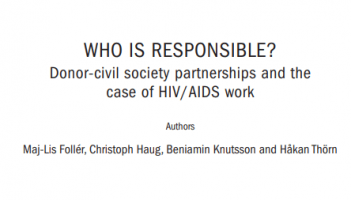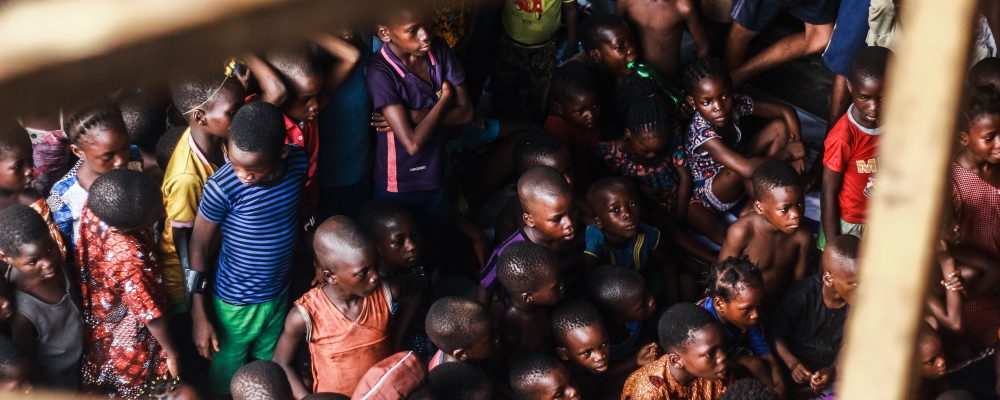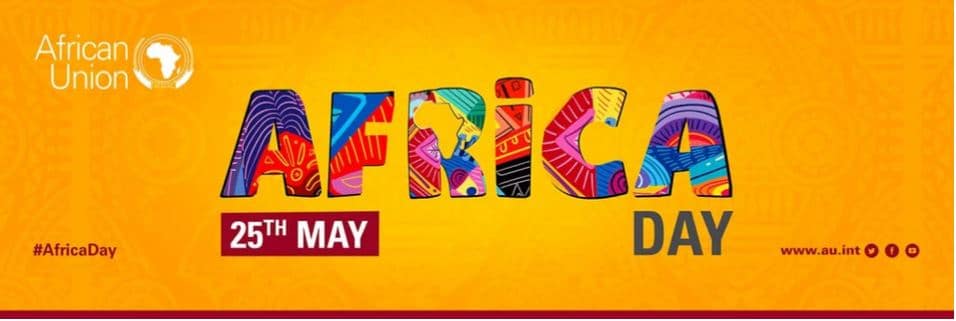
- This report analyses the tension over responsibility for combating HIV/AIDS in Sub-Saharan Africa. A common assumption about international development cooperation is that affluent countries have a responsibility to aid developing countries in their struggle against poverty and the problems poverty brings.
- This tension has led to two different trajectories regarding how responsibility is approached in international development cooperation: (1) ‘Expansion of responsibility’, which is the notion of shared responsibility, through partnerships on the global, national, or local level, for development and poverty alleviation, and (2) ‘Outsourcing of responsibility’, which is the tendency among donors to ‘responsibilize’ (shift responsibility to) the receiving partner.
- Controlling contemporary aid to civil society is a difficult task considering the complexity and multiplicity of the transfer of funds and responsibilities along the chain. This creates the problem of governing at a distance, which is less concerned with what is done, but rather with how activities on the ground are managed and if they produce measurable results.
- According to the authors, ‘responsibilization’ also consists of the self-regulation of aid recipients, as they are also given the responsibility by the donors to control themselves. This does not mean that donors surrender all control of how their funds are used, but instead engage in the regulation of self-regulation.
- The organization of development cooperation with civil society organizations (CSOs) is practised through four major governance strategies: (1) ‘Marketization’: creating competition between and fostering a culture of entrepreneurship among CSOs, (2) ‘Managerialization’: separating organizational control from both ownership and operational work by creating professional management positions, (3) ‘Scientisation’ and (4) ‘Standardization’, which are both evident in the implementation of methods such as standard operating procedures, indicators, monitoring and evaluation, evidence-based work and other ‘scientific’ approaches and the use of certain reporting tools, including forms, templates, log frames, and algorithms.
- Taken together, these methods create an environment governed by market mechanisms, in which CSOs are encouraged to establish management hierarchies that adopt scientifically legitimate and standardized methods for measuring results according to the model of results-based management.
- The four governance strategies through which donors exercise control at a distance are found by the authors of this report to be extremely effective. Even though the differences between the cases of Mozambique, Rwanda and South Africa in terms of political systems, economic wealth, the character of civil society and its relation with the state are vast, this report found striking similarities in all three countries in the practice of governance strategies and methods and their effects.







